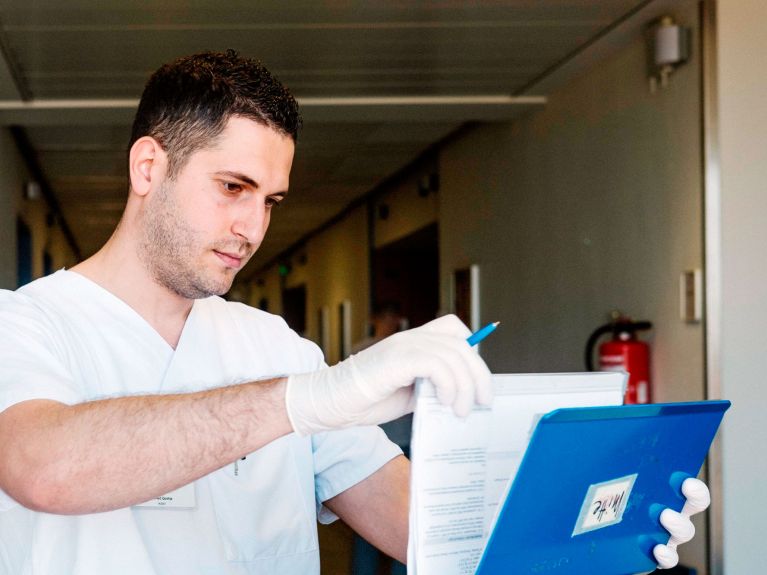A new start as a nurse in Germany
Opportunities for skilled workers and refugees from abroad: these start-ups have successful concepts for addressing the shortage of qualified nurses.

Nursing and geriatric care may not sound like an obvious area of business for a start-up – but it is! Two examples of successful social start-ups in nursing.
Linguedo offers jobs in nursing plus language skills
Because Italy has more applicants than there are vacancies in nursing, a start-up called Linguedo finds jobs at German hospitals for Italian nurses. What is special about Linguedo’s approach is that nurses are also offered an online German course that allows most to reach B2 proficiency level within just nine months. This helps them when they begin working in Germany. Italian nurses are already in a strong position from a professional viewpoint as they have to complete a bachelor’s degree course as well as several months of practical work experience. As a rule, the Italian qualification is recognised in Germany. “To date, we have placed around 60 qualified nurses with German hospitals – and the feedback has been very good”, says Linguedo’s Dominik Nitsch.
Dieses YouTube-Video kann in einem neuen Tab abgespielt werden
YouTube öffnenThird party content
We use YouTube to embed content that may collect data about your activity. Please review the details and accept the service to see this content.
Open consent formWelcome to nursing: good prospects for refugees
Many female refugees with children have problems finding a job in Germany. Founded by Birgit Schierbaum and Shilan Fendi, a social enterprise called “Willkommen in der Pflege” (i.e. Welcome to Care) aims to help. The two women know that work is a key step towards social integration. “It is important for refugees to become financially independent and to have a meaningful job and good chances of remaining in Germany”, explains Schierbaum.
Women participating in the programme so far come from countries such as Afghanistan, Eritrea, Iraq, Iran, Syria, Guinea and Libya. They are prepared for a job in nursing step by step: they began a German course in October 2017, and soon will be embarking on work experience placements that will give them insights into the everyday work of a nurse. The goal is for them to obtain a German certificate of lower secondary education and to begin training as nurses in 2020. “It takes a long time, but the training is demanding and the requirements are high”, says Birgit Schierbaum.

